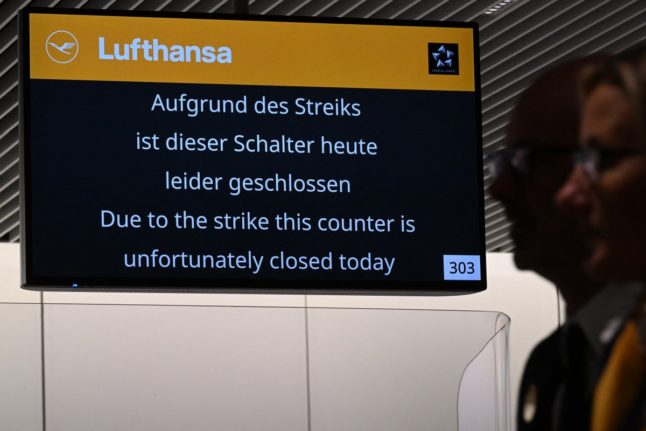More than 100,000 passengers had to change their plans on Wednesday due to workers’ strikes at Germany’s biggest airports.
The Verdi union has threatened longer strikes if Lufthansa did not significantly improve its previous wage offer for 25,000 employees working as ground staff.
The willingness to strike on the ground has never been so high in the past 20 years, chief negotiator Marvin Reschinsky warned at a protest in front of the Lufthansa administration at Frankfurt Airport.
The warning strike sends a clear signal to the board: “We can strike for longer if you want us to,” he said.
READ ALSO: Why Germany is being hit by strikes almost every day
Negotiations drag on between Lufthansa and union workers
Commenting on the strike on ZDF, Michael Niggemann, Lufthansa’s Chief Human Resources Officer, said, “It’s a bitter day for our passengers.”
He asked workers to accept the terms of their proposal.
But union negotiator Reschinsky accused Lufthansa’s management of treating its own people disrespectfully.
He suggested that there is a “two-class society” with different treatment for flight personnel compared to those who work on the ground.
Strike participants say they are dissatisfied with their working conditions.
A baggage inspector told DPA news agency, “We have 50 per cent fewer employees than before Covid, but the work has remained the same.” They added that salaries have not kept up with cost of living increases.
How and when will strikes end?
The current warning strike is scheduled to run until 7:10 am on Thursday.
In the wage dispute, Verdi is demanding a 12.5 percent salary increase, or at least €500 per month more for a term of one year. Additionally, they demand a group-wide inflation premium of €3000.
Lufthansa has offered 13 per cent more over a period of three years, as well as an inflation premium.
The next round of negotiations is scheduled for Monday.
If an agreement can be reached on Monday, it would likely be the end of airport strikes until 2025.
But if a collective agreement can’t be reached, further strikes could very well be on the horizon.
Airline passengers should brace themselves for further disruption.



 Please whitelist us to continue reading.
Please whitelist us to continue reading.
Member comments